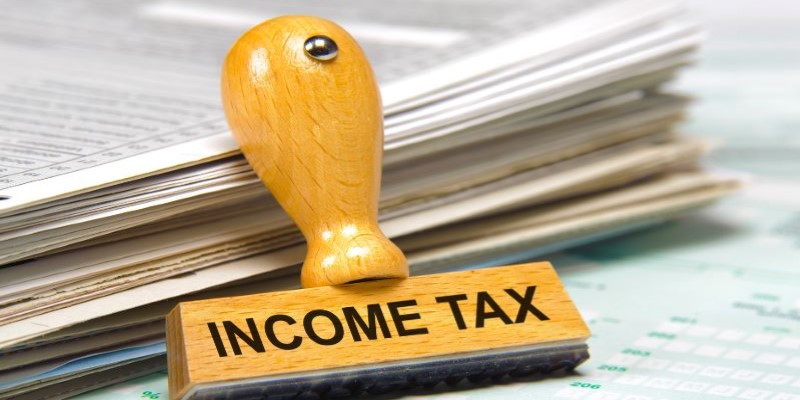Tax Relief Made Simple: A Beginner’s Guide to Section 1341 Credit
Dec 09, 2024 By Triston Martin
Dealing with tax overpayments can be frustrating, especially when youve already paid taxes on income that is later repaid or refunded. Section 1341 of the Internal Revenue Code provides relief for such situations. It allows taxpayers to recover overpaid taxes when the income they previously reported has been repaid.

This credit lowers the tax liability or may also generate a refund if specific conditions are fulfilled. It acts to ensure that individuals are not taxed on income that did not exist or with which they have parted ways. And if you ever repaid money, Section 1341 may give you what you need regarding tax relief.
What is Section 1341 Credit?
Section 1341 is a tax provision that allows taxpayers to adjust their tax returns when they have to repay income previously included in their taxable income. It is designed for situations where income reported in an earlier year needs to be returned, such as wage overpayments or refunded goods. Without this provision, taxpayers could end up paying taxes on money they never ultimately received or had to return.
Section 1341 prevents this by adjusting tax liability so that a taxpayer cannot pay more taxes than they should be repaid. It provides for correcting tax returns and repayment of income in previous years and ensures equity in the tax system. It ensures that you pay tax on the money that you have earned, not on money you had to give back.
Why Does Section 1341 Exist?
Section 1341 was enacted to solve a very specific problem: making overpayments of income taxes that have to be repaid. Imagine the following: A business person earns an item of income, reports it to the IRS, and pays taxes on it, later discovering it was wrongfully reported, or they have to return it. But without Section 1341, the taxpayer might be left in a pretty nasty position: having already paid tax on the income and being obliged to report it anyway.

The credit essentially prevents this double tax burden. It is especially important because tax law is built on the assumption that income earned is permanent. However, sometimes income needs to be adjusted or returned, and this credit helps account for those rare and unusual cases.
The main purpose of Section 1341 is to provide a tax remedy for the taxpayer by offering the ability to file an adjustment, reduce their taxable income, or refund taxes previously paid. This gives taxpayers a fairer system for dealing with income that has been repaid or refunded.
How Section 1341 Credit Works?
To claim a Section 1341 credit, specific criteria must be met. The income in question must have been included in a prior tax year, and the repayment amount must exceed $3,000. If these conditions are met, the taxpayer may be eligible for the credit. There are two main methods for applying for the Section 1341 credit: the general rule and the special rule.
Under the general rule, taxpayers adjust the current years tax return to reflect the repayment. This means they will report the repayment as income for the current year and receive a credit for taxes paid in the previous year. This method is often used when the repayment amount is substantial and the taxpayer has already paid significant taxes on the earlier income.
The special rule applies to taxpayers who want to amend their tax return for the year in which the income was originally reported. In this case, taxpayers file an amended return for the year they repaid the income, and the IRS adjusts the taxes for that year accordingly.
Its important to note that taxpayers are not always required to amend their tax returns. In some cases, a simple credit adjustment might suffice. However, those opting for the special rule must file an amended return with the IRS.
To claim the credit, taxpayers must include a statement with their tax return detailing the repayment, including the amount of income repaid, the year it was reported, and the taxes paid on it. This ensures the IRS has all the necessary information to process the credit correctly.
Who Qualifies for Section 1341 Credit?
Not everyone can claim a Section 1341 credit. To qualify, the taxpayer must meet the following conditions:
Repayment Exceeds $3,000:
The credit only applies to income repaid above $3,000. This ensures that the credit is used in cases where the repayment is substantial enough to affect a taxpayer's overall tax situation.
Income was Included in a Previous Years Tax Return:
The income must have been reported on a prior years tax return. This is important because Section 1341 is designed to correct the taxes paid on income that was later repaid or refunded.
Repayment of Income:

The taxpayer must repay the income to the source, whether that's an employer, client, or another entity. This means the money must actually be returned for the credit to apply.
Taxpayer Must Not Be in the Same Financial Situation:
The taxpayer cannot benefit from the repayment of income by being in a better tax situation than before. Essentially, Section 1341 credits only apply when the repayment results in a less advantageous situation for the taxpayer in relation to their taxes.
If these conditions are met, taxpayers can apply for the credit either through their current years tax return or by amending a past return, depending on the method they choose.
Conclusion
Section 1341 credit is a valuable tool for taxpayers who have repaid income they previously reported and paid taxes on. It prevents a double tax burden by allowing adjustments to past tax filings. Whether using the general or special rule, this credit can reduce tax liability in cases of income repayment. By understanding how Section 1341 works and knowing if you qualify, you can avoid overpaying taxes on income you no longer have or need to return. This simple, effective solution ensures youre only taxed on the income you truly earned, offering fairer tax treatment.

Aldrich Acheson Dec 04, 2024
Synchrony to expand payments

Pamela Andrew Dec 06, 2024
Exchange Rates: What They Are and How They Work

Susan Kelly Mar 24, 2024
Navigating Tax Season: The Top 8 Tax Forms You Need to Know About

Triston Martin Feb 01, 2024
Exploring Angel Investing: Your Comprehensive Beginner's Guide

Triston Martin Nov 21, 2023
What Does Annual Income Mean for Credit Cards?

Elva Flynn Sep 26, 2024